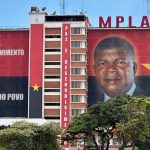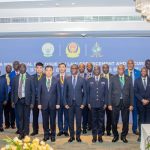Zambia has shown interest in understudying National Values charter, the cornerstone of proposed Nigerian Identity Project, earlier approved by Federal Executive Council (FEC).
This was part of the outcome of the second meeting between National Orientation Agency (NOA) officials, led by Director General, Lanre Issa-Onilu, and Zambian High Commission officials, led by Deputy High Commissioner, Jenipher Mutembo, in Abuja.
Issa-Onilu gave an overview of the operational structure of the agency.
He said: “The agency is one of the largest in Nigeria, with 818 offices in all 774 local governments, 36 states, and Federal Capital Territory (FCT). We are rooted at the grassroots and remain a vital communication channel between the government and people.”
A statement by NOA’s Deputy Director, Paul Odenyi, said the agency’s director general explained that it communicates policies, programmes, and projects to citizens and collates grassroots feedback to inform decision-making.
The statement added that the feedback is submitted to the relevant government institutions and the parliament.
Issa–Onilu said the narrow perception of leadership in Africa is limited to political figures, instead of encompassing civil, traditional, and moral leaders as influencers of national values.
Zambian Deputy High Commissioner, Mrs Jenipher Mutembo, lauded the hospitality and openness the NOA director general and his team extended to the team, recognising the strength and structure of the Nigerian agency.
Mrs. Mutembo said: “I must commend your presence in all local governments. This grassroots model is powerful, and we see its potential as a framework that others, Zambia included, can learn from.”
She applauded the agency’s commitment to providing an opportunity for Zambia to observe, learn, and possibly adopt aspects of NOA’s operational methodology for national reorientation and civic education.
The deputy high commissioner stressed the shared African values, youth influence, and the role of media, particularly touching on cultural perceptions exported through Nigeria’s creative industry.
“Our young people are watching these films. They are learning, forming ideas, and creating perceptions, sometimes misinformed, about success, morality, and identity. What we portray shapes national values and international image. As leaders, we have a duty to ensure that the content reaching the public inspires unity, innovation, dignity, and pride in African heritage.
















